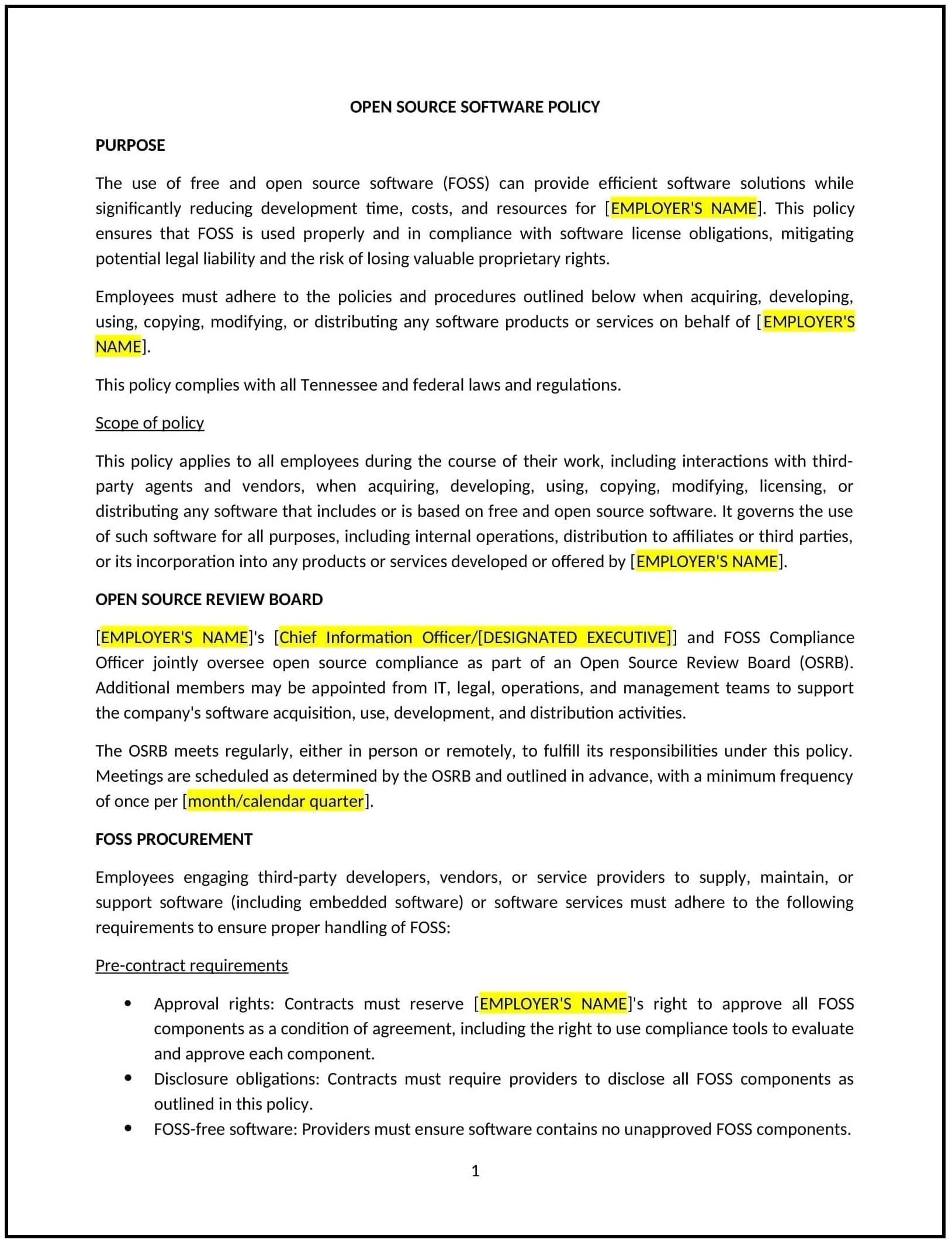Open source software policy (Tennessee): Free template
Got contracts to review? While you're here for policies, let Cobrief make contract review effortless—start your free review now.

Customize this template for free
Open source software policy (Tennessee)
This open source software policy is designed to help Tennessee businesses establish guidelines for using, contributing to, and managing open source software. It outlines procedures for ensuring compliance with licensing requirements and protecting intellectual property.
By adopting this policy, businesses can leverage open source software effectively while minimizing legal and security risks.
How to use this open source software policy (Tennessee)
- Define open source software: Clarify what constitutes open source software and its licensing requirements.
- Set usage guidelines: Specify how open source software can be used in business operations, such as for development or internal tools.
- Address contribution rules: Outline steps for contributing to open source projects, including approval processes.
- Train employees: Educate staff on open source software licensing, compliance, and security risks.
- Review and update: Assess the policy annually to ensure it aligns with evolving business needs and open source trends.
Benefits of using this open source software policy (Tennessee)
This policy offers several advantages for Tennessee businesses:
- Leverages cost-effective tools: Allows businesses to use open source software for development and operations.
- Enhances innovation: Encourages collaboration with the open source community and adoption of innovative solutions.
- Reduces risks: Ensures compliance with licensing requirements and protects intellectual property.
- Promotes transparency: Provides clear guidelines for using and contributing to open source software.
- Aligns with best practices: Supports a structured approach to managing open source software.
Tips for using this open source software policy (Tennessee)
- Communicate the policy: Share the policy with employees and include it in the employee handbook.
- Provide training: Educate staff on open source software licensing, compliance, and security risks.
- Monitor compliance: Regularly review open source software usage and contributions to ensure adherence.
- Address issues promptly: Take corrective action if licensing violations or security risks are identified.
- Update regularly: Assess the policy annually to ensure it aligns with evolving business needs.